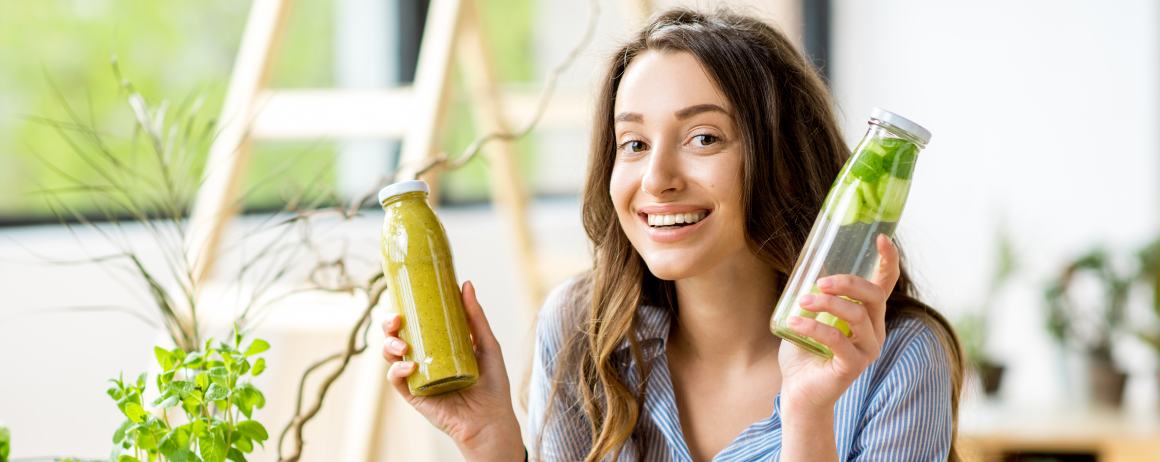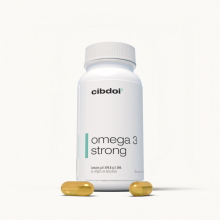How do vegans get enough omega-3?
Published:
Omega-3 fatty acids provide many health benefits. Getting sufficient omega-3s is important for overall wellbeing. The main dietary omega-3s are ALA, EPA and DHA. Vegans who avoid seafood can be at risk for low omega-3 intake. So what are the best plant-based sources and strategies for vegans to get enough omega-3s?
Contents:
Let's examine the top vegan foods, oils and supplements to optimize omega-3 status on a plant-based diet.

Overview of Omega-3 Fatty Acids
Omega-3 fatty acids are a type of polyunsaturated fat that is crucial for health. There are three main omega-3s:
ALA
- Alpha-linolenic acid.
- Found in plant foods.
- Offers cardiovascular and anti-inflammatory benefits.
EPA
- Eicosapentaenoic acid.
- Mainly from seafood.
- Supports heart and brain health.
DHA
- Docosahexaenoic acid.
- Primarily from fatty fish.
- Vital for eye and brain function.
Since EPA and DHA come mostly from seafood, vegetarians and especially vegans may be at risk of low intake. But there are plant-based ways vegans can get all three key omega-3s.
Recommended Intake of Omega-3s
Authoritative dietary recommendations for minimum daily omega-3 intake include:
- ALA: 1.1-1.6 grams (1).
- EPA + DHA: 250–500 mg for adults (2).
- 1-2 seafood servings per week, providing at least 500 mg omega-3s (3).
Without eating fish, it can be challenging for vegans to meet these recommendations. Let’s look at the best plant-based omega-3 sources and strategies.
Best Vegan Sources of Omega-3 ALA
These foods provide the most abundant amounts of plant-based ALA omega-3s for vegans:
Seeds:
- Flaxseeds: Over 6,300 mg ALA per 100 grams (4).
- Chia seeds: 4,915 mg ALA per 100 grams (5).
- Hemp seeds: Approximately 1,000–2,000 mg ALA per 100 grams (6).
Oils:
- Flaxseed oil: 7,350 mg ALA per tablespoon (7).
- Canola oil: Approximately 1,300 mg ALA per tablespoon (8).
- Soybean oil: Around 1,000 mg ALA per tablespoon (9).
Nuts:
- Walnuts: Average 2,500 mg ALA per 100 grams (10).
- Pecans: Around 100 mg ALA per 100 grams (11).
Other Foods:
- Brussels sprouts: About 500 mg ALA per cooked cup (12).
- Edamame: Up to 300 mg ALA per cooked cup (13).
Emphasize daily servings of flax and chia seeds, walnuts, flaxseed oil and other ALA-rich foods to maximize plant omega-3 intake.
Vegan Sources of EPA and DHA
In addition to prioritizing plant sources of ALA, vegans should include good vegan sources of the marine omega-3s EPA and DHA:
Algal oil
Made from marine microalgae, a sustainable vegan source providing mainly DHA (14):
- Around 300–600 mg DHA per teaspoon.
- Little to no EPA.
Seaweed
Certain edible seaweeds contain small amounts of EPA and DHA (15):
- Dulse: Around 100 mg EPA+DHA per 3oz.
- Spirulina: Approximately 60 mg EPA+DHA per 3oz.
- Nori: Up to 50mg EPA+DHA per sheet.
While seaweed omega-3 levels are low per serving, including it regularly can add up.
Fortified foods
More brands now fortify foods with EPA/DHA from algal sources:
- Milk alternatives: Soy, almond, oat, rice milk.
- Yogurts and puddings.
- Juices and smoothies.
- Breakfast cereals.
Check labels and choose fortified foods to boost EPA/DHA intake.
While levels are often smaller than fatty fish, these vegan sources help provide both ALA as well as marine-derived EPA/DHA.
Best Vegan Omega-3 Supplements
In addition to omega-3-rich foods, vegan supplements are recommended to help meet daily EPA and DHA needs:
Algal oil capsules
Popular vegan supplement often derived from algae species like schitzochytrium:
- Provides 300–600 mg DHA per serving.
- May include 100–200 mg EPA.
- Higher amounts require larger capsules.
Algae-based multivitamin
Some vegan multis contain around 100–300 mg DHA/EPA from algal oil:
- Helps meet vitamin needs.
- Lower omega-3 amounts than oil capsules.
Flaxseed oil capsules
Each 1,000 mg capsule typically supplies around 700 mg ALA.
Hemp, chia or walnut oil capsules
Also provide plant-based ALA. Amounts vary by brand.
Look for reputable vegan supplement brands certified free of any animal products.
Tips for Vegan Cooking with Omega-3s
Creative use of omega-3-rich ingredients can boost intake. Try adding:
- Ground flax or chia seeds to oatmeal, smoothies, baked goods.
- Walnuts or pecans to salads, stir fries, curries.
- Flaxseed oil to salad dressings, sauces, dips.
- Soybean, canola or nut oils for cooking.
- Hemp hearts as a topping for oats, salads or yogurt.
- Brussels sprouts, edamame or seaweed side dishes.
- Veggies, nuts, seeds and oils to tofu scrambles, soups or pasta.
Get familiar with using omega-3-containing ingredients to creatively maximize dietary intake.
Signs of Potential Omega-3 Deficiency
Pay attention to possible symptoms indicating you may need more omega-3s in your diet:
- Dry, flaky or itchy skin.
- Fatigue, weakness or poor endurance.
- Poor memory, cognitive decline or lack of focus.
- Blurred or sensitive vision.
- Depression, anxiety or mood changes.
- Joint pain or stiffness.
Talk to your doctor for testing if experiencing concerning symptoms. Blood levels can determine if more omega-3s from diet, fortified foods or supplements may help.
Omega-3s for Vegans: Key Takeaways
In summary, optimal vegan omega-3 intake involves:
- Eating chia, flax and hemp seeds daily for abundant ALA.
- Using flaxseed and canola oil for additional ALA.
- Consuming walnuts, pecans, soybeans, Brussels sprouts and seaweed for small amounts of ALA and EPA/DHA.
- Taking vegan DHA supplements like algal oil capsules to provide direct EPA/DHA.
- Choosing fortified foods like juices, milks and cereals.
- Cooking creatively with omega-3-containing ingredients.
- Monitoring potential deficiency symptoms.
Conclusion
While being vegan limits omega-3 intake from seafood, it is possible to get adequate EPA, DHA and ALA from plant sources like flax, chia and algae.
Prioritize daily flax and chia seeds for abundant ALA. Combine with smaller amounts of walnuts, oils, fortified foods and vegan DHA supplements.
With some effort, knowledge and creativity, a vegan diet can provide sufficient anti-inflammatory omega-3 fatty acids for optimal health.










